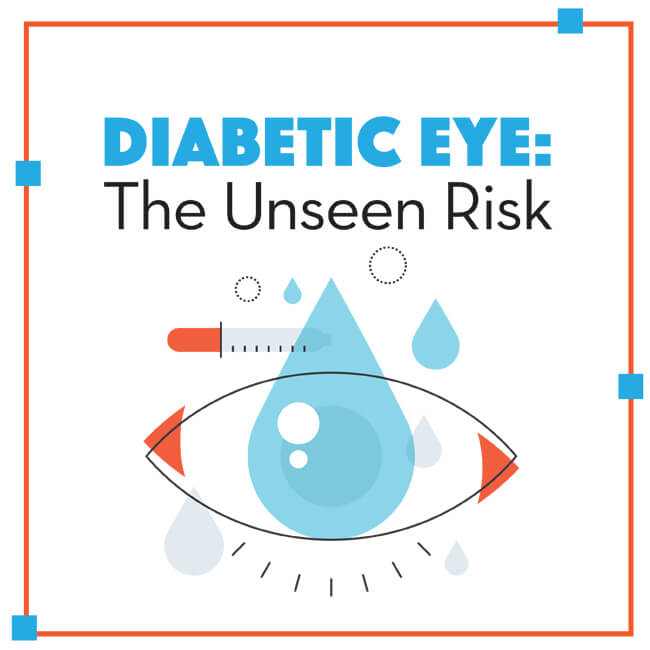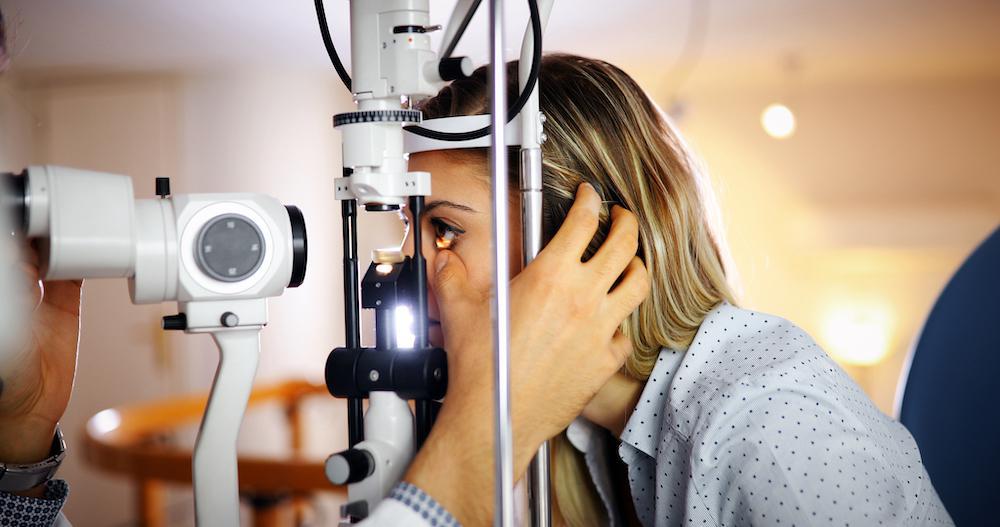Taking care of your health with diabetes is crucial, and don’t forget about your eyes. Shockingly, around 422 million people worldwide have diabetes, mostly in lower-income countries, and it’s linked to 1.5 million deaths yearly.
Diabetes can seriously affect your eyes, leading to vision issues or even blindness if untreated. Book an appointment with Dr. Seema Behl, the Best Ophthalmologist in Andheri, Mumbai for diabetes-related eye concerns.

Link between Diabetes and Eye Health
Diabetes, particularly Type 1 and Type 2, poses a significant risk to eye health. The elevated levels of blood glucose associated with diabetes can impact the blood vessels in the eyes, leading to a condition known as Diabetic Retinopathy. This condition is a leading cause of blindness in adults, emphasizing the importance of vigilant eye care for those living with diabetes.
Common Eye Complications in Diabetes
Diabetic Retinopathy: As mentioned, diabetic retinopathy is a condition where prolonged exposure to high blood sugar damages the small blood vessels in the retina. This can lead to vision impairment or blindness if not addressed.
Leakage from affected vessels can result in complications like bleeding, diminished blood supply to the retina, edema, the development of new vessels, retinal detachment, ultimately progressing to end-stage diabetic eye disease, and potential blindness.
Diabetic Macular Edema (DME): DME is a consequence of diabetic retinopathy, where fluid accumulates in the macula, the central part of the retina. Think of the macula as the camera of your eye, capturing the images we see. This can cause distorted vision and is a significant complication of diabetes.
Glaucoma: Diabetes increases the risk of developing glaucoma, a condition characterized by increased pressure in the eyes that can damage the optic nerve and lead to vision loss.
Cataracts: People with diabetes are more prone to developing cataracts, a clouding of the eye’s lens. While cataracts are a common age-related condition, those with diabetes may experience their onset earlier.
Understanding the Risks
Individuals with diabetes face an elevated risk of eye problems, potentially leading to compromised vision and, in severe cases, blindness. Alarming is the fact that these issues often manifest without noticeable signs or symptoms. Changes in vision can be subtle and gradual, making regular eye checks imperative for timely identification and intervention.
The Importance of Eye Checks
The silver lining is that most diabetes-related vision loss can be averted or controlled through consistent eye examinations and prompt treatment. Unfortunately, many individuals in India miss out on these critical eye checks, either due to a lack of awareness or challenges fitting them into their busy schedules.
Why is Regular Eye Examination important?
Diabetes can trigger various eye problems, with Diabetic Retinopathy (DR) being the most common. DR damages the tiny blood vessels at the back of the eyes and, when left untreated, can result in vision loss. Early detection through routine eye checks is key to effective treatment and preserving vision.

What to Expect in a Diabetes Eye Check Up?
A typical diabetes eye health check-up includes:
- Visual acuity or vision check-up
- Eye pressure check-up
- Dilated retinal check-up:
- To detect any bleeding
- To identify swelling on the retina
- To assess any cataract changes in the lens
The entire process typically takes 1-2 hours. Since the eyes will be dilated, it’s advisable not to drive, and reading or doing close-up work may be challenging.
If any issues with the retina are identified, additional tests may be required, such as OCT (a CT scan of the retina), fundus photography, flowscan, angiography, etc.
Detection and Treatment
In the early stages, we might just keep an eye on things without jumping into treatment right away. It’s important to control your blood glucose, blood pressure, and cholesterol to slow down diabetic eye issues.
If there’s swelling in the retina or new blood vessels forming, the treatment could include:
- Intravitreal Injection- Shots in the eye to reduce swelling and prevent new blood vessels
- Laser/ PRP- Photocoagulation for treating the retina.
- Surgery in more advanced stages.
Preventive Measures for Eye Health
Regular Eye Exams: Routine eye examinations are critical for individuals with diabetes. Comprehensive eye exams can detect early signs of diabetic retinopathy and other eye conditions, enabling timely intervention.
Blood Sugar Control: Maintaining stable blood sugar levels is key to preventing or slowing the progression of diabetic eye complications. Collaborate with healthcare professionals to develop a diabetes management plan that includes diet, exercise, and medications as needed.
Blood Pressure Management: High blood pressure can exacerbate diabetic eye problems. Controlling blood pressure through lifestyle modifications and prescribed medications is vital for overall eye health.
Healthy Lifestyle Choices: Adopting a healthy lifestyle, including regular exercise, a balanced diet, and avoiding smoking, can contribute significantly to managing diabetes and reducing the risk of eye complications.
Holistic Healthcare Tip: Reducing stress through practices like mindfulness and adopting an overall healthy lifestyle can further enhance your well-being and contribute to effective diabetes management.
Schedule a consultation with Dr. Seema Behl, an Eye Doctor in Andheri East, to address all your diabetic related eye conditions. Ensure expert attention to your vision needs by booking your appointment today for comprehensive eye care.

